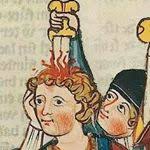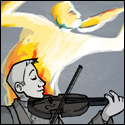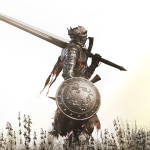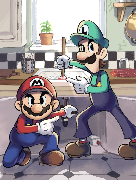|
Verisimilidude posted:It's why I believe the best time to be a player in a game and the best players to have in your group are new players, exactly because they don't know the rules. The game is a mystery to them, and the magic of the illusion of the game and the story that unfolds is its most potent. Yeah, this is unthinkable to me, both in general but especially in the context of a game that takes this much time and effort to learn. Why would I ever bother with a game that gets worse the longer you play and the better you understand it? It's all but telling you that it isn't worth your time!
|
|
|
|

|
| # ? May 9, 2024 18:03 |
|
Tuxedo Catfish posted:It's true that encounter design isn't nailed down to quite the same extent that e.g. setting up the table for an actual wargame is, or as much of the initial state of a CCG or whatever. But I think it's still significant that it's siloed in time from the act of actually playing out the combat; designing an encounter in D&D isn't done with the same intent as competitive list-building in Warmahordes or Magic, most likely it's done to create something that the players have a (high, but not completely trivial)) chance of succeeding at, and in 4E's case making them expend a certain amount of resources, etc. So it sounds like what you're saying is that part of the assumed "game" in D&D4e at least, is the challenge to the GM to construct an encounter ahead of time that, when played out, will be good: but if they "cheat" by altering parameters of the encounter while it is being played, they're invalidating that aspect of the game. Is that right? Because my problem with this is that the GM isn't the one who pays consequences for errors, the players do. Essentially this means if the GM makes a mistake, the players may have a bad time, but the GM isn't allowed to notice them having a bad time midway and fix their mistake after the fact. If it's bad for the GM to fudge a roll, how about the GM deciding that the enemies aren't going to target the downed PC this round, which gives them a chance to get a heal and spend a surge? Or deciding the enemies will retreat? What if they avoid a dangerous roll late in the encounter by just not using a given enemy's strongest power option? It just seems odd to me to single out dice rolls as inviolable when there's all these other ways the GM can quietly make choices "within the rules" that change encounter difficulty that the players don't necessarily know about.
|
|
|
|
Tuxedo Catfish posted:Yeah, this is unthinkable to me, both in general but especially in the context of a game that takes this much time and effort to learn. Why would I ever bother with a game that gets worse the longer you play and the better you understand it? It's all but telling you that it isn't worth your time! The best players I've ever had in my groups were brand new players who have never played a TTRPG in their lives. Conversely, the worst players I've ever had in my groups are players who knew the rules inside and out. I'd also say the players in my groups who have the most fun are the ones who don't have mastery of the rules. I'm not saying players who know the rules can't enjoy the game or get less out of it. I'm saying, as a DM, it's easier to run a game for new and open-minded players than rules experts with years of expectations.
|
|
|
|
Leperflesh posted:So it sounds like what you're saying is that part of the assumed "game" in D&D4e at least, is the challenge to the GM to construct an encounter ahead of time that, when played out, will be good: but if they "cheat" by altering parameters of the encounter while it is being played, they're invalidating that aspect of the game. Is that right? Yes. It might not capture everything I'm saying but it's a very important part of it. e: in particular my definition of "good" is something like "the players are unlikely to lose outright, but the consequences of failure are not game-ending or boring; conversely, if they win, there are many fine gradations of success that correlate directly to player skill and teamwork" so there are at least three things going on there: - the game values skill / mastery and expresses this in its rules - degrees of success replace binary success / failure in order to make the game less stressful (but not less deep!) than traditional PvP games - combat is part of a feedback loop with narrative and/or downtime play, ideally with no truly "bad" outcomes in that context Leperflesh posted:Because my problem with this is that the GM isn't the one who pays consequences for errors, the players do. Essentially this means if the GM makes a mistake, the players may have a bad time, but the GM isn't allowed to notice them having a bad time midway and fix their mistake after the fact. Oh, I don't mean to single out dice rolls, they were just the immediate topic of discussion. I think TTRPG game design should strive to reduce the extent to which players, including the GM, have conflicts of interest or are required to "self-police" as much as is practically possible, because self-policing is completely inimical to tactical/strategic/mastery-based play in particular, and also just kind of unfun in general. Tuxedo Catfish fucked around with this message at 21:16 on Feb 16, 2023 |
|
|
|
Leperflesh posted:I could replace an at-will attack power of a monster, taking away its dice roll and giving it a flat damage result that always hits. Or I could give its spell a low, easy save. Or I could just add "doesn't affect dragonborn" to the description. That's within the bounds of the rules. Does it matter if I do that before the PCs enter the encounter, or, after I roll a die during the encounter and decide the result shouldn't have been left to chance? I broadly agree with you here, per my earlier comments that deciding on the fly that a given monster type should get a bonus once it's bloodied or that there was a group of reinforcements around the corner are among the most legitimate/least objectionable means of fudging how an encounter going. Until and unless they release an edition of D&D in which the DM is formally constrained by some kind of point-buy system, there's never going to be grounds for saying much beyond "aw, c'mon" if another couple imps and chaingunners teleport in at the top of round 3. What I think this points to, however, is that the line between stuff that the GM should feel free to gently caress with invisibly and the stuff that the GM should actually propose/announce they're going to gently caress with is the line between the narrative quantum foam that exists outside the players' sight and the stuff whose waveform has actually collapsed into something with definite parameters because the PCs have observed or interacted with it. Once I bloody an enemy with 20 damage, I should not watch it survive another 30 or 40 damage. If an enemy's first basic attack on me deals 30 its next four shouldn't be dealing 1d10+3 without the GM saying "ooh boy that's actually way higher than it should be, I'm gonna tune that down for the rest of the fight (and you can have 20hp back if you like)". There's a post somewhere in Reddit that's a 5E DM honestly asking other DMs for help, and the issue he's having is that the paladin in PC party is doing too much damage. He's been secretly halving the paladin's damage behind the DM screen but it's still not quite enough and he wants a better solution! Now, is this different in principle from secretly increasing monster HP or damage resistances instead (presuming he could make sure this only happened to monsters the paladin was fighting or a damage type only the paladin dealt)? No, and for that reason a monster-centric solution to the problem would be no better, but I think the idea of your damage being secretly halved backstage specifically rankles because, like, you put work into assembling that damage expression. You rolled it yourself. That's your labor! Verisimilidude posted:The cat's out of the bag unfortunately, but they don't know the extent of the illusion. And unless I tell them, they'll never know. What preoccupies me here is like, okay, your players know about, and are okay with, your occasional background fudging to make stories go more pleasingly. But, they also know that you don't announce every time you do this, so it's kind of like how X-Com on "normal" difficulty secretly gives you a higher-than-displayed chance to hit if you've been missing a lot recently. But that means that every memorable victory, desperate save, etc. may or may not have been a kabuki. So they get more dramatic, exhilarating experiences, except that every dramatic experience might have been a work. Like, imagine this. Your players fight a dragon or whatever and it's seriously like the very last one of them is standing and the dragon's also on low hit points and it all comes down to whether this final attack hits and my god, it's a crit, and that was the dragon's last hitpoint, you won! Your players are all whooping and high-fiving. Later, you reveal to the players that, in fact, the dragon's remaining HP were over triple the fighter's hypothetical maximum damage output, in fact there was no way the dragon would fall and it would have simply squashed the fighter flat, you just gave it to them because you thought it'd make a better story. And they, I imagine, would be pretty philosophical about this and would agree on the whole with you that it was a good idea and it's preferable that the game can go on etc. But, secretly, you weren't fudging the dragon's hitpoints. They beat it fair and square. You just lied on a lark, and, of course, that changed their understanding of what had happened in the game, largely for the worse. But they have that same understanding of everything else that goes on in the game! If you think about it, isn't the best thing you can do for your players to loudly forswear all roll-fudging henceforth, pledge to just let the dice fall where they may from here on out, but then continue to put your thumb on the scales in secret?
|
|
|
|
Ferrinus posted:If you think about it, isn't the best thing you can do for your players to loudly forswear all roll-fudging henceforth, pledge to just let the dice fall where they may from here on out, but then continue to put your thumb on the scales in secret? I've done this a couple times with different groups. I've implicitly done it with my main group by switching to rolling out in the open (with the VTT, my rolls appear just like there's do). What they don't know is that sometimes I switch up the bonuses, damage dice, powers, and other things on the monster NPC sheets on the fly. They can't see these values, they can only see the dice results. Unless they know monster stat blocks by heart or are looking them up, they don't know they're being tweaked. Even then, I've established that I don't run creatures as written in the monster manual 100% of the time. So long as the creatures are acting realistically and to their own benefit, the players don't notice they're being tweaked on the backend.
|
|
|
|
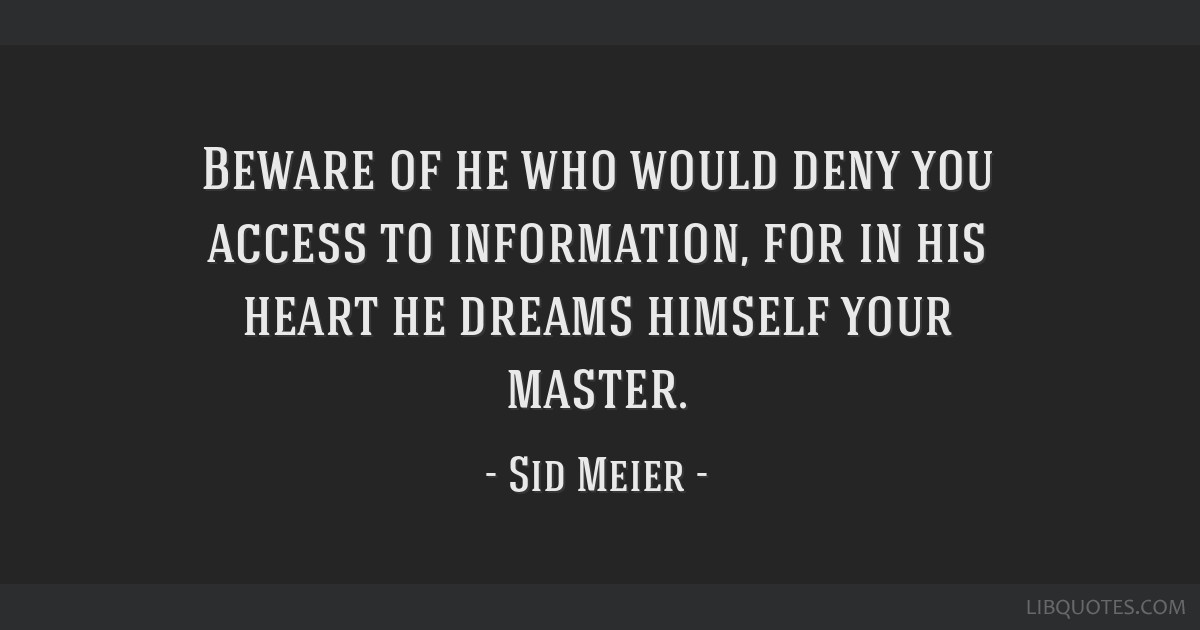
|
|
|
|
These days I just have a conversation with my players before a game and ask, "Do we want it to be possible for player characters to die in this campaign?" The answer is always no. So it's not so bad for the characters to lose, since character death is not on the table. It also means you don't have to open the can of worms that is "What does a world with resurrection magic look like"
|
|
|
|
Gort posted:These days I just have a conversation with my players before a game and ask, "Do we want it to be possible for player characters to die in this campaign?" Cowards But seriously, that sort of session zero communication is key. I don't kill characters in most of my games for exactly the same reason.
|
|
|
|
The question of players dying bears on this but doesn't really encapsulate the issue, because someone might want to juice or tamp down some roll or other just for the purpose of managing drama or making a challenge more narratively satisfying even when death's not on the line.
|
|
|
|
True, but D&D by it's rules mostly has players losing result in death. You can choose to ignore that, and you should. But even then, D&D doesn't do anything to make losing fun or interesting. "A good GM can do that." When that's all there is to say, that's a failure of the game. What kind of narrative has the protagonists never lose? You might be able to point to some. "Competence porn" is a term I've seen thrown around. And you might think D&D is a good fit there... but then you look at what it's like outside of combat, and the huge range of the d20 makes the characters notably inconsistent and often incompetent. It's literally the opposite of what it's like in combat, where the basic assumption is the players will always win. What kind of narrative is that? A drat weird one. If this D&D made losing fun, you wouldn't get GMs saying "I only ever fudge things in my players' favour." Implicitly, if they always fudge towards whatever is dramatically satisfying for the players, and they always fudge in favour of the players, it's because they know that losing doesn't feel dramatically satisfying. Even fixing character death, the consequences for losing a combat are often deleterious to the flow of the emergent story. But also, the way losing works is crap! The first player out just sits around for ages while the other players slowly get chipped away and drop out one by one. In a loss, all the mechanics that make for fun comebacks and tilt the odds in favour of the players winning just end up drawing things out and making them dull and bleak.
|
|
|
|
Ferrinus posted:In terms of fight balance hotfixes, I don't think I'd object to monsters unlocking new powers upon getting bloodied and/or to reinforcements flooding in but I'd get mad if, say, I bloodied an enemy after dealing 30 damage and then noticed later that it took me 50 more damage to actually put it down. So if your DM made a custom monster with a reaction power that gave it temp hp when bloodied, you'd get mad at them?
|
|
|
|
Tarnop posted:So if your DM made a custom monster with a reaction power that gave it temp hp when bloodied, you'd get mad at them? I would if it was totally un-narrated such that we had to figure out it was going on once our numbers started failing to line up, in the same way as I would be if the DM just neglected to mention that a troll's wounds were closing before our eyes.
|
|
|
|
Having mechanical death not be narrative death is, hypocritically, something I use a lot. I once TPK'd a split group and had those characters get taken hostage. Partly character death is , in part , a nostalgia for a very different type of game - when I was a teen in the 90s my local gaming store had pick up 2nd edition D&D games and there was a lot of highly lethal, drop in and drop out play. You didn't mind character death as much partly because the game was much bigger even than your party, let alone that character.
|
|
|
|
Jimbozig posted:True, but D&D by it's rules mostly has players losing result in death. You can choose to ignore that, and you should. Yeah this is leading more and more into that sort of philosophy of game design conversation, but I agree a basic issue with D&D, and it's plain as day in 4e, is that "you're badly losing and need to run away" is dealt with so poorly. There's not really any "try to escape" enhancing powers or skills, at least none with that clearly as the primary purpose, because that's such a rare occurrence. And it'd be nice if losing without running away didn't basically imply death: of course the enemies could just switch to doing nonlethal damage if they want to capture the PCs, but that's not exactly satisfying either, it feels sorta like a random cop-out.
|
|
|
|
Ferrinus posted:I would if it was totally un-narrated such that we had to figure out it was going on once our numbers started failing to line up, in the same way as I would be if the DM just neglected to mention that a troll's wounds were closing before our eyes. Getting mad at someone for not satisfactorily narrating a monster power seems like an extreme reaction
|
|
|
|
Tarnop posted:Getting mad at someone for not satisfactorily narrating a monster power seems like an extreme reaction It's playing dirty pool, like not specifying which monsters are minions.
|
|
|
|
Leperflesh posted:games like go and chess and poker are perfectly balanced and yet not boring Chess isn’t perfectly balanced at all. The player who goes first has a significant advantage.
|
|
|
|
Maxwell Lord posted:Chess isn’t perfectly balanced at all. The player who goes first has a significant advantage. Same with Go. The number of points given to the player going second has increased I think three times since it was introduced because players keep getting better at exploiting that advantage Ferrinus posted:It's playing dirty pool, like not specifying which monsters are minions. It's possible we just have different ideas of what getting mad means, because that just sounds like grounds for a polite chat
|
|
|
|
Leperflesh posted:And it'd be nice if losing without running away didn't basically imply death: of course the enemies could just switch to doing nonlethal damage if they want to capture the PCs, but that's not exactly satisfying either, it feels sorta like a random cop-out. They don't actually have to do that in 4e, they just choose to not kill you when they reduce you to 0 HP or less. One of the best rules in 4e, and I houserule it into every game I play.
|
|
|
|
One thing I'm going to introduce to my 4e game now we're in the final act is the ability "Last Breath". A player making a death saving throw can voluntarily choose to have their character permanently die, the player and their PC are out of the campaign. Doing so allows any other characters to spend their second wind as a free action and recover the use of any one daily power.
|
|
|
|
Whybird posted:One thing I'm going to introduce to my 4e game now we're in the final act is the ability "Last Breath". A player making a death saving throw can voluntarily choose to have their character permanently die, the player and their PC are out of the campaign. Doing so allows any other characters to spend their second wind as a free action and recover the use of any one daily power. Just want to get clarification on this, is it just the character is gone, or like do you straight up kick the player out of the game, sorry no coming back. I'm assuming it's the former, but the way it's phrased is a little odd.
|
|
|
|
If I was gonna implement that rule, I'd have it do something extra for dwarfs, they already get to easily spend their second wind.
|
|
|
|
Neither, the character and the player both die for good. No victory without sacrifice.
|
|
|
|
Whybird posted:Neither, the character and the player both die for good. No victory without sacrifice. 
|
|
|
|
I definitely think one of the weaknesses of 4e especially more than other editions of D&D is that 4e is heroic in tone to start and only gets more mythical as you gain levels, and the thing about myth is that death itself is often a fairly revolving door, so having a PC bite it randomly isn't entirely a circumstance with a lot of weight imo.
|
|
|
|
The way I started handling possible TPK's lately, is that for every fight, I ask myself the question – “what happens if the PC’s lose?”. Occasionally, I even tell the players ahead of combat what will happen if they lose. For example, at the end of our last adventure, the party was sneaking around the City of Brass, trying to find a working portal to get back home. They found a malfunctioning portal hanging mid-air above a lake of fire, and set out to re-enable it as they were beset upon by two rival gangs. I straight up told the players at that point “If you lose here, these guys will steal all your magic items, and sell you as slaves to some Efreet lord”. In the Shadowfell adventure, it was a “You die… and come back. You are now stuck in Shadowfell, trying to either move on to proper afterlife, or get resurrected”. One encounter that might pop up soon is the party fighting a Fae lordling. If they lose – "Congratulations, you are now saddled with a geas! Have fun trying to complete it whilst still pursuing your original long-term goals". Haven't had a TPK so far, though. I suppose it would be OK once, but doing this twice or more might end up feeling more slapstick than anything.
|
|
|
|
Torchlighter posted:I definitely think one of the weaknesses of 4e especially more than other editions of D&D is that 4e is heroic in tone to start and only gets more mythical as you gain levels, and the thing about myth is that death itself is often a fairly revolving door, so having a PC bite it randomly isn't entirely a circumstance with a lot of weight imo. It's definitely not the case compared to other editions of D&D. Remember 3rd ed, where you died at -10 HP, no matter how many HP you had? That meant at higher levels most characters going below 0 were going to die. In 4e you die at negative half HP, which is much more forgiving and leads to a lot more characters falling over unconscious instead of being instantly killed.
|
|
|
|
Serious answer: I was initially leaning towards "the player doesn't come back to the game" on the basis that this was only happening towards endgame anyway, so it wouldn't be much fun for them to start up a new PC who'd only be with the group for one or two sessions. But I'm reconsidering that now, since they're also OC gonna want to be around to see how things end, so maybe I'll have it be "a former allied NPC becomes your new character".
|
|
|
|
Speaking of "what happens when you lose", I've recently been running a game called Troubleshooters, which is basically trying to emulate European adventure comics like Tintin. The game flat out tells you to have a scene prepared for when the characters get captured, and a character that gets captured gets a ton of story points (which are a currency that lets you - among other things - declare major plot points to be true) which is a pretty powerful bonus and lets the character have a big comeback from the low point. Some bad rolls lead to the party's cat burglar being captured five times in four adventures, four times by the same villain. The character was: * Strapped to an Egyptian sarcophagus and dropped into Lake Geneva * Trapped in the pyramid tomb of Khufu's high priest which was filling with sand * Tied to a support pillar in a derelict house in Pisa full of tripwire bombs * Trapped in a laser drilling chamber for ice cores in the North Pole * Chained to a mind control engine that was going to mind-wipe everyone in Czechoslovakia
|
|
|
|
Torchlighter posted:I definitely think one of the weaknesses of 4e especially more than other editions of D&D is that 4e is heroic in tone to start and only gets more mythical as you gain levels, and the thing about myth is that death itself is often a fairly revolving door, so having a PC bite it randomly isn't entirely a circumstance with a lot of weight imo. Yeah the RPG that has the death flag rule where you can only die if you choose to take that risk and you get some power ups doe the fight is onto a winner here. I've been doing something similar in 4E - it really encourages you to think about the fights properly because their have to be actual stakes, the town your defending is burnt down, the person you are rescuing is killed, whatever it is.
|
|
|
|
I feel like fixing the narrative bits - what happens when the players lose - is easy enough. I've been grappling with the issue that it's actually tougher to fix the player-elimination aspect. One character goes down, now the party is outputting 75% of its expected damage, so the fight goes slower and monster damage gets more concentrated on the survivors. Another character goes down, now the party damage output is below 50% of what it was. The defender is still up - they're going to take a long time to wear down and probably can't do enough damage to win the thing. Meanwhile, the first player to get out has been sitting on their hands for a long while. It's boring for them, they don't get to contribute. Like with Strike! I fixed the narrative stuff and thought I didn't have to worry about it anymore. I thought "ok, the players can lose a fight and it's all taken care of." But with more experience, I've found that this aspect of the problem is still there - that losing fights are sloggy fights. So in my latest game Tailfeathers, there is no player elimination because it's a sport, but I've been working out things to do for Strike! to fix it, and those ideas would apply to 4e, too. I think you could have for each class some cool powers that characters only get after they are taken out. For some classes (necromancers, psionic classes), it's easier to think of stuff than others, but making it so having your character down doesn't mean you have to sit out the rest of the fight is a cool option that works really well in 4e's reskinning-friendly framework.
|
|
|
|
Maxwell Lord posted:Chess isn’t perfectly balanced at all. The player who goes first has a significant advantage. That's why you switch between the light and dark pieces and tournaments try to make sure you play the same number of matches as each. Presumably same with Go. In poker the button circulates around the table so you play once in each position per rotation. The specific analogue chosen isn't important: the point is that depth of play isn't dependent on having so much complexity that any semblance of balance is impossible. Depth can arise from systems that have just a handful of operating components. This doesn't even mean that RPGs shouldn't be complicated! It just means RPG designers shouldn't intentionally choose to layer more and more complexities solely out of some principle that play must be boring if they don't. Go.has a grid and one kind of piece and can be studied for a lifetime without being solved or getting boring. Chess has a smaller grid and six kinds of pieces. A game does not have to have thirty character classes and a hundred prestige classes and five hundred feats and a thousand spells and two thousand magic items and five thousand monsters to be interesting to play... it just needs to create interesting decisions. Sequences of interesting, interdependent decisions can create depth. Balance does not erase this option.
|
|
|
|
I'm thinking about how chess and go are played on square featureless terrain that would make for an extremely boring fight location in 4E Go sort of creates terrain in play by leaving behind all the remnants of your past battles so now I want to try a 4E fight in a big empty room but it's the classic videogame collapsing floor where the square disappears after you step off it.
|
|
|
|
Tarnop posted:Go sort of creates terrain in play by leaving behind all the remnants of your past battles so now I want to try a 4E fight in a big empty room but it's the classic videogame collapsing floor where the square disappears after you step off it. It's a rickety attic and the floor in any square collapses every time you score a critical hit on an enemy there 
|
|
|
|
Gort posted:These days I just have a conversation with my players before a game and ask, "Do we want it to be possible for player characters to die in this campaign?" gently caress that. If PCs die they can replaced the next day by a near identical barbarian from the same village. "I am Krog brother of Grog"
|
|
|
|
Tarnop posted:I'm thinking about how chess and go are played on square featureless terrain that would make for an extremely boring fight location in 4E Not a chess expert by any means, but perhaps the chess equivalent of this would be that characters have a lot weirdly defined immediate reactions and interrupts (so straight lines and diagonal lines instead of close bursts), so that they threaten different parts of the map, which builds up the "terrain" as the combat goes on. Tarnop posted:Go sort of creates terrain in play by leaving behind all the remnants of your past battles so now I want to try a 4E fight in a big empty room but it's the classic videogame collapsing floor where the square disappears after you step off it. I did something like this last session. The PC's were on a boat that got destroyed by the river-dwelling dragon and his pet monsters. The characters started out standing on various planks and assorted flotsam in the middle of the river. As the fight went on, these got destroyed every time the swimming monsters went charging into them. The barbarian ended up charging from one side of the river to another, by jumping onto a dead monster's body floating halfway across, then jumping to the other side.
|
|
|
|
12Apr1961 posted:I did something like this last session. The PC's were on a boat that got destroyed by the river-dwelling dragon and his pet monsters. The characters started out standing on various planks and assorted flotsam in the middle of the river. As the fight went on, these got destroyed every time the swimming monsters went charging into them. The barbarian ended up charging from one side of the river to another, by jumping onto a dead monster's body floating halfway across, then jumping to the other side. It's a crime that 4E launched with Keep on the Shadowfell instead of something cool like this
|
|
|
|
Tarnop posted:It's a crime that 4E launched with Keep on the Shadowfell instead of something cool like this The official 4E adventure paths were pretty criminal in general, just room after room of boring poo poo like three orcs and a hole in the floor (in a system that thrives on interesting monsters and a few big set-piece battles with dynamic terrain), and occasional basic encounter design gently caress ups like a level 6 encounter for a level 1 party. Nothing grinds my gears quite like a book full of good encounter design advice that the official adventure designers clearly ignored. I wonder how many people got turned off 4e between the bad adventure paths and the "lots of HP but no damage output" monsters the early books had.
|
|
|
|

|
| # ? May 9, 2024 18:03 |
|
IMO it was a triple whammy. The surface level changes got the grogs up in arms. The PHB reading dryly, while good for game design, scared off anyone on the fence. And if you're still hanging in there, the busted math and awful first adventures got you wondering if maybe you break your old books back out, or look into this Pathfinder everyone's hyping up.
|
|
|






